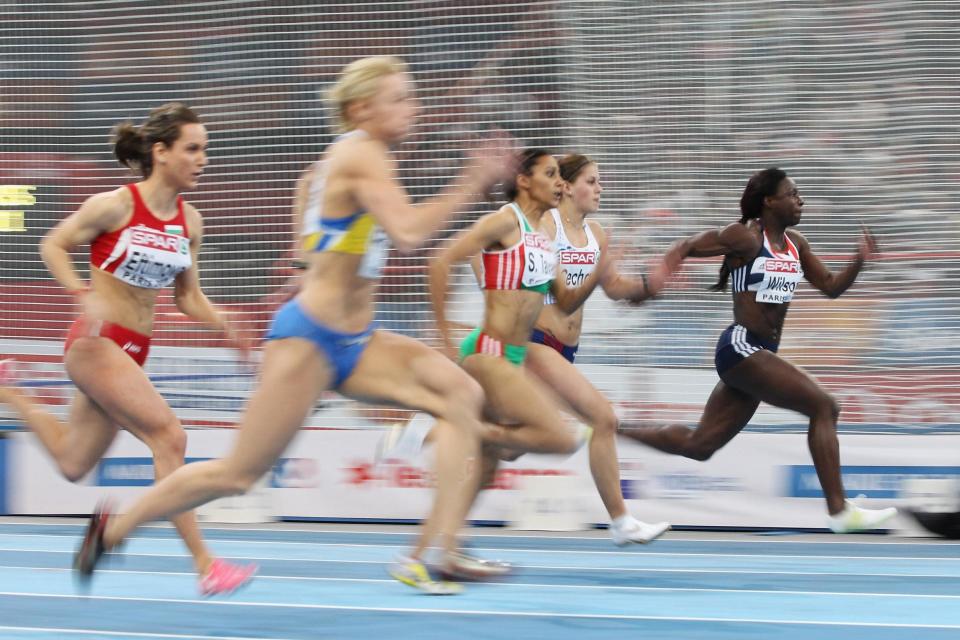Athlete Bernice Wilson admits the drugs she took could have killed her

It is three years since the sprinter Bernice Wilson split from her coach and boyfriend George Skafidas but flowers still come from him - a dozen red roses this Valentine’s Day, another bouquet for her birthday last month.
Wilson has long since severed ties from Skafidas but knows she will be remembered for a partnership which led to her twice testing positive for banned substances and Skafidas being handed a lifetime ban by UK Anti-Doping.
During UKAD’s clean sport week, Wilson wants to be a reminder of the perils of taking banned substances, while UKAD chief executive Nicole Sapstead has warned of an alarming number of people taking unregulated substances at the most amateur sporting levels.
Wilson’s floral tributes remain a nod to the control he once held over her and the 34-year-old remembers vividly initially taking the steroid clenbuterol, for which she tested positive in 2011 .
“The first time I took it I was really scared but George would say, ‘It’s a baby amount’,” she said. “It wasn’t something I wanted to do but it felt like I had no choice. I was in a very dark place. My message from my coach was, ‘It’s okay, everyone’s doing it and you should, too, you should be taking drugs’. I was in a relationship with him, too, so I was even more influenced and felt like I had no choice.”
A second ban followed for clomiphene in 2015 in which “George had replaced my vitamin tablets with drugs” and destroyed the initial letter from UKAD informing her of the failed test.
She recalled: “So I Skyped him and recorded his admission on my phone and I later found out what he gave me could have killed me. I knew it was serious but that’s when I thought it was really serious.”
Skafidas admitted the charges against him following a UKAD investigation and Wilson is using this week and her role on UKAD’s athlete commission to help others avoid succumbing to the same pitfalls she experienced.
For UKAD, Wilson is not one of a kind nor is the taking of banned substances the reserve of just elite athletes. Sapstead said: “We’re seeing an increasing issue at the lower ends of sport where we don’t generally go because of a resource point of view but we will go there.”
The range and availability of supplements for purchase on the internet are among the burning issues facing the organisation.
“There’s a lot of naivety,” she said. “Just because you read about some product in a magazine, don’t go buying things with no regard from the internet. Supplements are being made all over the world, in uncontrolled and unsanitary conditions, in underground labs.
“As a member of the public, you won’t get tested necessarily but do you want to put steroids in your system, stimulants in your system, a load of mouse faeces, as that’s the reality of what’s being produced?
“It’s very alarming and dangerous. I’m not saying all supplements are like it but they’re unregulated and there’s no checks.”
At the elite end, Sapstead believes there can still be greater education for sportsmen and women from a young age. And in part, UKAD’s drive is to try to win back the public’s faith in sport, tarnished by a series of high-profile cases in recent years, from the Russian state-sponsored doping scandal to the recent UKAD cases involving Tyson Fury and Sir Bradley Wiggins.
“When I go out in a social situation, something will be said about a sports person and I’ll get, ‘Come on, they’ve got to be on it’,” said Sapstead. “It’s not good if that’s the default position.
“We have to address people’s cynicism but, if organisations around the world don’t do enough, this will continue.”
For Wilson, her message is simple. “Don’t do it,” she said of those tempted to dope. “So often I’ve wanted to turn back the clock but I can’t change that.”

 Yahoo News
Yahoo News 